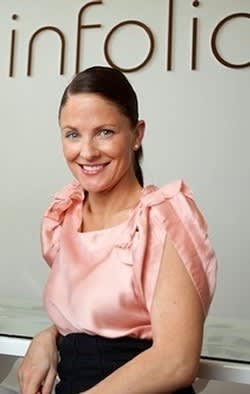Two property entrepreneurs in StartupSmart's top 10 gender barrier-breaking female entrepreneurs
Australian women make great entrepreneurs. That’s not just an idle opinion – recent research revealed that Aussie women are second only to their American counterparts when it comes to starting businesses.
But while plenty of women are launching their own businesses, there are some areas that are still deemed off-limits.
Go to any gathering of tech, finance or manufacturing businesses, and you’ll do well to spot a female founder.
Orsi Parkanyi, founder of networking group Women as Entrepreneurs, says: “Being a woman is not easy. Being a woman in a man's world is not easy either.”
“But the most challenging of all is staying a woman in the men's world. I'd like to hope that women are not required to take on stereotypical male attributes in order to be successful, however, this is something I have been noticing we tend to do.”
“Women who focus on their strengths and utilise traditional female traits such as strong interpersonal skills, networking skills and empathy to their advantage will have a good chance to stand out, be noticed and succeed.”
“Finding mentors and seeking out influential social networks also a great way to get the support and encouragement women need from time to time.”
Here, to mark International Women’s Day, are 10 of the best Aussie entrepreneurs who have overcome the gender hurdle.
1. Cathy Edwards - Chomp
Cathy Edwards is the co-founder of app search start-up Chomp, which was recently acquired by Apple for around $US50 million.
Prior to Chomp, Edwards led mobile product development at Friendster, and launched a converged SMS-IM mobile messaging product while at 3jam. She has also worked for Telstra.
“When building your start-up, it is important to focus your limited resources on components where you can add a significant amount of value,” Edwards told Women 2.0.
“Work out what technology will be core to your business, and find existing or outsourced solutions for everything else.”
“From your very first hire, learn to hire engineers you trust and respect… You’ll be a lot less stressed out than if you’re the bottleneck for everything.”
2. Nicole Kersh - 4CablingLike many start-ups, 4Cabling was spawned from frustration with the status quo. While working at her parents’ electrical cabling company, Nicole Kersh found that getting prices from suppliers was a long and inefficient process.
Realising that there was a lack of online cabling providers, Kersh took the plunge and started 4Cabling in 2006. The business has since boomed, pulling in more than $3 million revenue last year.
However, Kersh has had to deal with outdated attitudes over both her age and gender, in what is traditionally a male-only sector.
She says: “When I first started, none of my suppliers would take me seriously, it was very discouraging. But it made me realise the importance of building solid relationships.”
“Customers still look at me sometimes and say, ‘I want the boss.’ I just go and find the oldest male employee. It’s a very male-dominated industry and people can’t comprehend I’m the boss.”
“If they like the product, the notion of who runs the business doesn’t bother me.”
3. Cherie Barber - Renovating For Profit
After completing her first house renovation, Cherie Barber decided to ditch her career as a marketing executive to throw herself into the construction industry.
In the first year of her renovating career, Barber achieved a profit of $1.15 million after buying, overhauling and selling six properties worth a combined $6.3 million.
Her status as a rare female entrepreneur in a male-dominated sector has seen her courted by the media as a renovation expert.
In 2009, Berber launched Renovating For Profit, which sells workshops and courses to Australians looking to revamp their own homes.
Despite her success, gender-related challenges linger for Barber, as she explains: “Tradesmen try to give me ridiculously high quotes. I say that I know what things cost and if they're going to give me a ridiculous price, not to waste my time.”
“I ask for their opinion, throw out open-ended questions and do my research that way. If you look like you don't know what you're talking about, you'll get charged more.”
4. Sonja Bernhardt - ThoughtwareIn addition to being the founder and chief executive of software company Thoughtware, Sonja Bernhardt also founded Women in Technology and Australian Women in IT and Science.
Last year, she was honoured for her contribution to the industry with a Medal of the Order of Australia, and has been inducted into the Women in Technology Hall of Fame in Silicon Valley.
Bernhardt believes most challenges can be overcome regardless of gender through rational thinking, having a healthy ego, and determination to “keep getting up and moving on”.
“Technology is a career where your ideas and creations may end up creating a wave of change around the world or having a vast impact on a small community,” she says.
“[However,] it takes you, your ideas and passion to make it happen. In any career, it is important to be involved in areas that [speak] to who you are, your style, your interests, your philosophy.”
5. Rebekah Campbell - PosseBecoming the manager of a leading band is rare enough among women, but even fewer have then switched careers to become a high-flying tech entrepreneur.
Rebekah Campbell has defied the odds to launch Posse, an online platform that allows bands to offer rewards, such as tickets or backstage access, to fans that undertake various tasks, such as increasing the artist’s Facebook ‘Likes’.
Although the promotions-based site is little over a year old, it has sparked high-level interest both in Australia and overseas. Google Maps founder Lars Rasmussen is an advisor and has predicted a big future for Posse.
Campbell says: “(Starting up) was a long and tricky process, and it probably aged me by 10 years, but I learnt so much along the way.”
“As a non-techie, I could identify clearly the problem that needed to be solved. A lot of tech companies can’t do that. But I needed to surround myself with the right people.”
“I realised that the difference between a superstar tech team and a good tech team is the difference between Facebook and a shipwreck.”
6. Catherine Prosser - StageBitzHaving founded Canberra-based theatre software company Production Genie, Catherine Prosser was well aware of the rigors of starting a tech business.
But that didn’t stop her from seizing the opportunity to launch another business, StageBitz, when the opportunity presented itself.
StageBitz is a cloud-based web app that helps stage, film and TV production professionals easily manage their props and connect with others.
Sydney seed fund Pollenizer liked the idea so much that it has backed Prosser, while Mat Lawrence, head of props at Opera Australia, is a co-founder.
“Most of the time, people don’t think that a product like this exists, Prosser told StartupSmart last year.
“We’re not doing a new type of an existing product – it’s a brand new thing. It’s not so much brand awareness but solution awareness, if you like, so that’s the biggest challenge.”
7. Kylie Gentle - Design ExpertsAs the co-founder of Design Experts, Kylie Gentle was recently named a nominee for Young Entrepreneur of the Year in the Asia Pacific Business Excellence Awards.
Prior to Design Experts, which Kylie co-founded with her husband Tim, she worked as a housekeeper and cook on an outback cattle station.
With long days and lots of time to spare, the Gentles began to build websites for local communities, which is how Design Experts was born.
“[In regional areas], you’re dealing with a certain demographic that doesn’t necessarily want to deal with a woman,” Kylie says.
“I’ve had to bite my tongue, regarding what I would normally say, and think about how I deliver my message.”
8. Dale Burke - What Scratch?Dale Burke co-founded automotive scratch repair business What Scratch? with her husband Matthew. Last year, the business appeared in the StartupSmart Awards top 50.
Dale says it’s her name that has proved to be the most eye-opening aspect of being female in a male-dominated industry, particularly when people speak to her for the first time over the phone.
“They’re expecting to call a man – it’s a male-dominated industry and I’ve got a male-sounding name, so I get some very interesting reactions when I say, ‘This is Dale speaking’,” she says.
“I’ve had people hang up on me or say, ‘The ad said if I call this number, I would be speaking to the franchisee’. I have to explain that I am the franchisee.”
“Usually, I just make a joke about it and start talking about the business. After a few sentences, they realise I know what I’m talking about. I have to win them over, I suppose.”
9. Lauren Staley - Infolio
Shaking up an industry that can be both resistant to change and male-centric is a challenge that Lauren Staley has not shied away from.
Following a lengthy career in real estate, Staley realised there was a gap in the market for an end-to-end service that looked after the interests of all the parties involved in property transactions.
She founded Melbourne-based buyers advocacy and property management company Infolio in 2008, also branching out into auction bidding, property negotiation and renovation guidance. Infolio is now making significant headway in the property market.
Launching just before the GFC was a chastening experience for Staley, but it allowed her to remodel the business from the ground up, aiding its future growth.
“I think it’s better to start from humble beginnings,” she says.
“It gives you more focus. When the GFC hit, it was a humbling experience. We prospered because we had to be resilient and not spend money that didn’t make us money.”
10. Caroline Robinson - Wheatbelt Business NetworkCaroline Robinson lives in Woolocutty, a tiny town in the middle of WA, and is the founder of the Wheatbelt Business Network, established to promote the services of local businesses.
The WBN also provides opportunities for entrepreneurship and networking, training and education, and the advancement of women in business.
“I’ve always run my community development and project management business as much as I can using online tools, email and Skype, rather than travel five hours for a one-hour meeting,” she says.
Robinson also highlights the value of having a support network to draw on, including a director’s course she attended, in addition to the Rural Industries Research and Development Corporation.
“I know I can ring and ask any of the women I was with [during the course] or the RIRDC alumni for advice on a problem,” she says.
This article originally appeared on StartupSmart.
